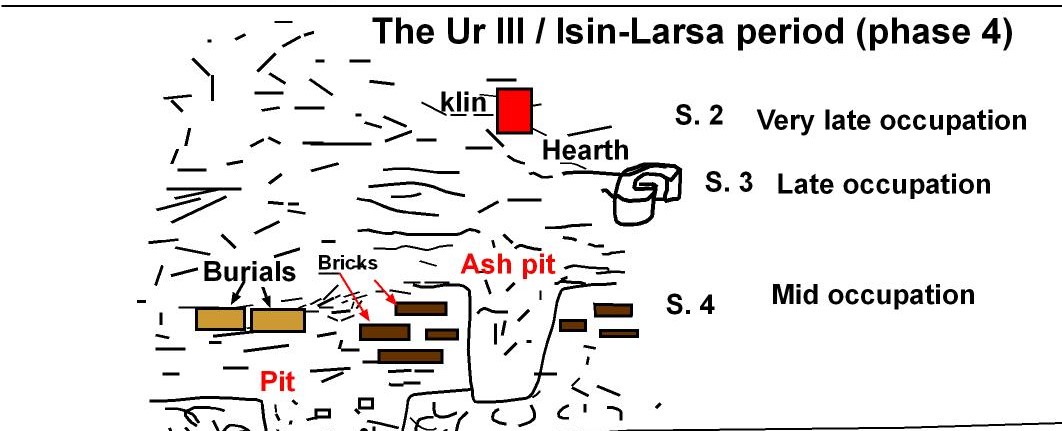Back to top: Phase Phase 4b4AAH within unit A6
Stratigraphy
The 4b4AAH represents the earliest stage of the Ur III period, the Isin-Larsa period, and the Khabur period. It is characterized by the pit f29, which cuts through the lower levels, particularly Phase 3b5AAH, indicating that it lies directly above the level of the walls of Building AK. Evidence suggests the presence of a possible floor, represented by f111, which may be associated with a phase of occupation or functional activity at the site. This phase also shows a clear integration with Phase 4b3AAH, particularly through the shared burial a12, which constitutes the actual upper level of Phase 4b4AAH. As the excavation deepened, a packed layer of red soil was uncovered, likely associated with a phase of site abandonment. The removal of the Wadi accumulation f135 revealed that it had filled a gap caused by the removal of a wall (a “negative” wall), identified as f139, which is aligned with wall f123. It is also notable that in this phase 4b3AAH, the original walls of Building AK began to emerge clearly as their tops were reached. Further evidence shows that pits had cut down from above into the earlier walls f194 and f195, which were originally connected but separated by this later intrusion.
Back to top: Phase Phase 4b4AAH within unit A6
Objects
The phase 4b4AAH provided a diverse assemblage of ceramic, including: q422 (pottery fragment), q426.2 (strainer), q426.1 (pot) and q462.1 (plate). In addition, burial a13 was discovered in the north-eastern corner of unit k218. The phase also yielded animal figurines such as q423.1, and a weapon labelled i83. One of the most significant finds is a seal impression i125, which depicts a woman wearing a long, patterned dress, facing right, and holding a necked jar at the base.

Back to top: Phase Phase 4b4AAH within unit A6